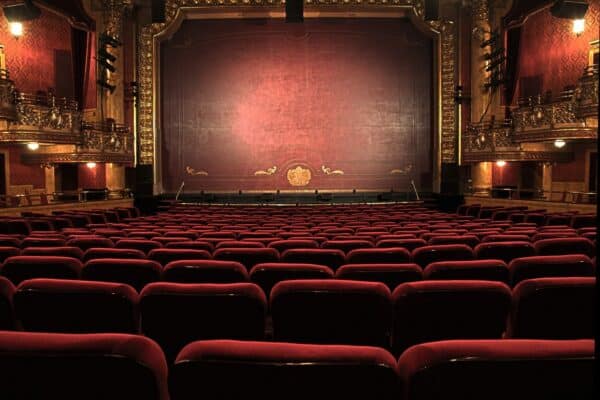Sångerskan-La canterina är en opera (intermezzo in muscia) i två akter med musik av Joseph Haydn. Libretto är hämtat från tredje akten av Niccolò Piccinnis opera L’Orgille (1760).
Sångerskan – La Canterina 1760 synopsis
Köpmanssonen don Ettore och sångerskan Gasparina älskar varandra, men han är för fattig för att de skall kunna gifta sig. I stället försöker don Pelagio vinna hennes hjärta. Han kommer i olika förklädnader och prövar henne och avslöjar på så sätt att hon är villig att acceptera hans frieri endast därför att han är välbärgad.
Då don Ettore ärver en förmögenhet kan de båda älskande få varandra, och don Pelagio skänker storsint Gasparina den ring han hade lovat henne i förlovningspresent.
UPPHOVSPERSONER
Musik: Joseph Haydn|Text: Carlo Goldoni
Premiär
Uruppförande: Pressburg (Bratislava) 16 februari 1767. Svensk premiär: Drottningholmsteatern 2 juni 1966.
Roller och rösttyp
| Roll | Rösttyp |
|---|---|
| Gasparina | sopran |
| Apollonia | mezzosoprano |
| Don Pelagio | baryton |
| Don Ettore | tenor |
Libretto
Mer att läsa
IN ENGLISH
La canterina (The Songstress or The Diva), Hob. XXVIII/2, is a short, two-act opera buffa by Joseph Haydn, the first one he wrote for Prince Esterhazy. Based on the intermezzo from the third act of Niccolò Piccinni’s opera L’Origille (1760), it lasts about 50 minutes. It was written in 1766, and was premiered in the fall of that year.
It was originally intended as a pair of intermezzi, each of the two acts coming between the acts of an opera seria. Similar works include La serva padrona by Pergolesi and Pimpinone by Telemann.
Gasparina, the songstress, and her “mother”, Apollonia, are visited by Don Ettore, a young man who attempts to woo Gasparina with fabric and jewels stolen from his mother. When Don Pelagio, Gasparina’s singing instructor and benefactor, arrives, the women attempt to disguise Don Ettore as a merchant and send him away. Don Pelagio teaches Gasparina a new aria he has written for her and asks her to marry him.
When Don Pelagio leaves, Gasparina calls Don Ettore back in. Don Pelagio has left something behind, however, and returns to catch Gasparina and Don Ettore together. Don Pelagio and Don Ettore are both angry at having been deceived and taken advantage of by the women. Don Pelagio decides to throw the women out of their apartment, which he had given them, and begins to carry away their belongings.
Gasparina pleads for forgiveness and mercy, and Don Pelagio is swayed. Not only does he allow her to stay in the apartment, but he brings his own belongings to the women. Gasparina continues to take advantage of the situation, pretending to faint. The men lavish her with money and diamonds, which have a curiously restorative effect. In the end, the men recognize Gasparina’s greed, but nonetheless willingly hand over their riches.
The comic potential is enhanced by Don Ettore being played as a pants role — that is, by a woman. The role of Apollonia can also be played by a man.
There are two quartets, and all characters but Don Ettore have arias to sing.
Roles
| Role | Voice type | Premiere cast 11 September 1766 / 16 February 1767 |
|---|---|---|
| Don Ettore | tenor | Leopold Dichtler |
| Apollonia | soprano | Barbara Fux-Dichtler |
| Don Pelagio | tenor | Karl Friberth |
| Gasparina | soprano | Anna Maria Weigl-Scheffstoss |
Selected recordings
- B. Harris, Fortunato, Garrison; Palmer, 1994 (Newport Classic)



 Annonsera på Operalogg och bestäm själv vad det får kosta
Annonsera på Operalogg och bestäm själv vad det får kosta
